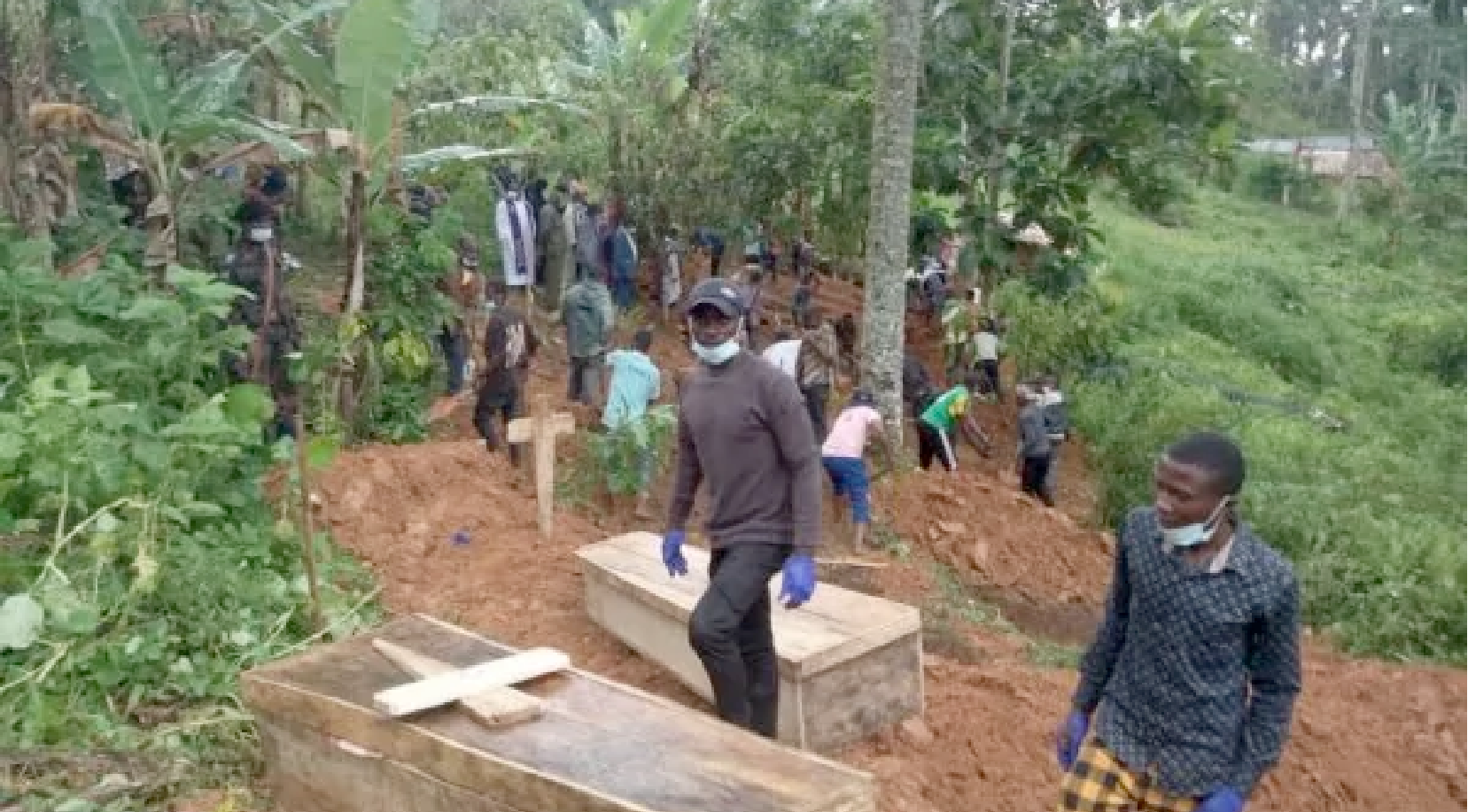Christians in Nigeria and Congo Suffer Silent Genocide

Funeral For The Victims Of The Ntoyo Massacre (Congo) Photo: ACN
OCP News Service – 17/10/2025
Abuja – Kinshasa: Nigeria and the Democratic Republic of Congo (DRC), Christian communities are suffering one of the worst and least acknowledged waves of religious persecution in modern history. Churches are burning, clergy are being abducted, and entire villages are disappearing under the advance of Islamist militant groups while the world remains largely silent.
According to Newsweek and Catholic News Agency, more than 7,000 Christians have been killed in Nigeria so far in 2025, an average of 35 per day, while 1,200 churches are destroyed each year. Since 2009, when Boko Haram launched its insurgency, at least 19,000 churches have been attacked, looted, or burned, leaving millions displaced.
The violence has expanded beyond the country’s north, engulfing the Middle Belt and parts of the south. Intersociety, a Nigerian human rights group, estimates that 12 million Christians have been displaced since 2009, their homes and farmlands taken over by armed Fulani extremist militias.
Christian clergy have become deliberate targets. Catholic News Agency reports that at least 145 Catholic priests have been kidnapped and 11 murdered in 2025 alone. Hundreds more Protestant and Pentecostal pastors have faced similar fates. One recent victim, Fr. Matthew Eya, was shot dead in Enugu State on September 19 after returning to his parish.
The chief perpetrators identified by Nigerian and international observers include Boko Haram, the Islamic State West Africa Province (ISWAP), and Fulani jihadist militias. The U.S. State Department also lists Ansaru and ISIS-West Africa (ISIS-WA) among active terror organizations operating in the region.
In many attacks, militants kidnap villagers and clergy for ransom, while Christian children are forcibly converted or trafficked to radical indoctrination camps. In Kaduna and nearby states, over 850 Christian captives are reportedly still held by insurgents, some allegedly in areas close to military outposts—fueling accusations of official negligence or complicity.
The same pattern of violence has spread across borders into eastern Congo, where Islamist insurgents continue to target Christian populations with devastating intensity.
A ZENIT investigation (September 30, 2025) documents atrocities committed by the Allied Democratic Forces (ADF)—a Ugandan-origin militant group aligned with the Islamic State Central Africa Province (ISCAP).
In Ntoyo village, North Kivu province, at least 64 Christians were killed in a nighttime attack involving machetes, gunfire, and firebombs. In Lubero, more than 70 bodies were found inside a Protestant church—many of them decapitated. Dozens of worshippers were also massacred during a prayer service in Ituri province. According to ZENIT, these attacks are part of a deliberate campaign to erase Christianity from large areas of Central Africa. Church leaders warn that the pattern of atrocities in Congo and Nigeria is linked—suggesting a transnational jihadist strategy spreading across the region.
Despite repeated appeals by bishops, priests, and human rights defenders, international response remains muted. Advocacy groups describe the crisis as a “slow-motion genocide” against Christians—one carried out through displacement, abduction, and terror, while the world’s attention remains elsewhere.
“This is a genocide that no one talks about,” one Church leader told ZENIT.
“If this were happening anywhere else, the world would be outraged,” a Nigerian pastor told Newsweek.
The toll of persecution continues to grow: families uprooted, parishes abandoned, and priests martyred for faith. Yet, amid fear and violence, the faith of these communities endures—a living testimony of courage and hope in the face of darkness.
A Call for Conscience
From Nigeria’s embattled Middle Belt to Congo’s war-torn North Kivu, the Church’s suffering in Africa is both human and spiritual. Faith leaders urge the international community to recognize these crimes as religious genocide, hold perpetrators accountable, and support those risking their lives to defend the faithful. The persecution may seek to silence the Church—but in the blood of martyrs and the prayers of survivors, the witness of faith continues to speak.
